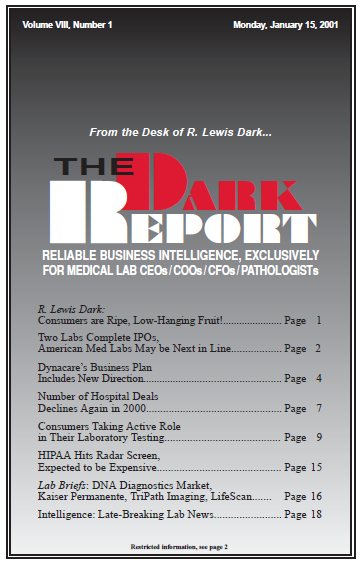CEO SUMMARY: HIPAA is beginning to generate controversy as implementation dates are announced. The American Hospital Association is painting a black picture, despite protestations of certain experts. Meanwhile, managed care companies are finding it difficult to come together and form a unified lobbying effort. All the signs point to a rancorous public debate on important …
HIPAA Hits Radar Screen, Expected to be Expensive Read More »
To access this post, you must purchase The Dark Report.


